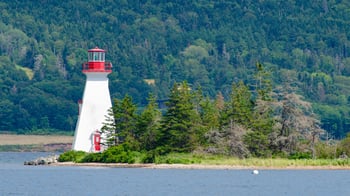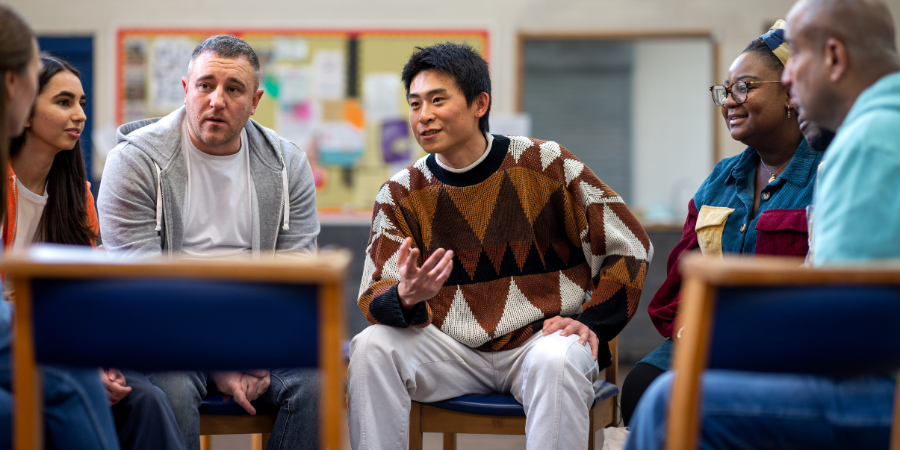This resource is also available in French. Click here to access the French version.
This blog post is part of a series written by participants in the Tamarack Institute’s 2022 Community Climate Transitions Cohort, a 10-month learning journey in which multisector teams from 19 communities across Canada explored a collective impact approach to climate transition. See the full list of posts here.
 Our cohort group consisted of four partners, two based in Halifax and two based at the other end of the province in the Cape Breton Regional Municipality. Our shared interest was exploring how collective impact might support climate change efforts in Cape Breton.
Our cohort group consisted of four partners, two based in Halifax and two based at the other end of the province in the Cape Breton Regional Municipality. Our shared interest was exploring how collective impact might support climate change efforts in Cape Breton.
Community Climate Transitions provided a terrific opportunity to do just that through excellent presentations and resources on the key ideas behind collective impact and the steps to pursuing it. All of our partners were enthusiastic and we met regularly to try and plan what we would do together. And yet, at a certain point in our conversations, our group stalled at how to move forward. What was our next step as a cohort? We seemed to be having the same circular conversation over and over.
As we reflected on this, we realized that the problem wasn’t any lack of fit with the general concept of collective impact. It was clear that climate change was the very sort of complex issue calling for ongoing collaboration among a wide range of partners.
On the contrary, we recognized that ‘collective impact’ was already evolving in our community in its own way. A citizen-led Climate Change Task Force had recently been created to rally people around this urgent issue (mobilizing, convening, educating); environmental NGOs and other community organizations were already pursuing various climate-related projects often in partnership with one another; and, in due course, a Mayor’s Advisory Committee on Climate Change was created to deepen municipal government involvement in climate change efforts.
In a dense and evolving field such as this, did it make sense to initiate another intervention? Likely not. Rather than trying to start a new collaboration, we decided that it would be more effective to lend support to the existing and growing climate change movement in Cape Breton.
That’s not to say that the cohort experience wasn’t valuable. On the contrary! By providing a space for local community members to step back and reflect on the bigger picture of our work, like the key ingredients for collective impact, effective practices employed by others, and tools and resources to support the work, the cohort initiative has helped to highlight the challenges and opportunities for evolving the local process.
Specifically we can share the following responses to a series of questions:
- What is the shared aspiration bringing people together? ‘Sustainable well-being for all’ is the vision of the Climate Change Task Force, which may resonate in a community looking to build a better future after years of economic, social and environmental challenges.
- Do we have the data we need? Proponents of a local data portal have begun seeking out the sorts of climate and other data required to inform local efforts on climate change and a just transition (Canadian Climate Atlas; CLIMAtlantic).
- What structures are required to anchor community collaboration? Conversations are now emerging about the need for a multi-sectoral roundtable, what that might look like and how we get there.
- What resources are needed? The need for funding to support the ‘backbone’ process has been flagged and some potential sources identified.
- How do we build relationships and hope around tangible action? ‘Multi-solving’ has offered a new lens for thinking about specific initiatives that can link multiple partners and achieve multiple goals (e.g., energy poverty, food waste, public transportation).





